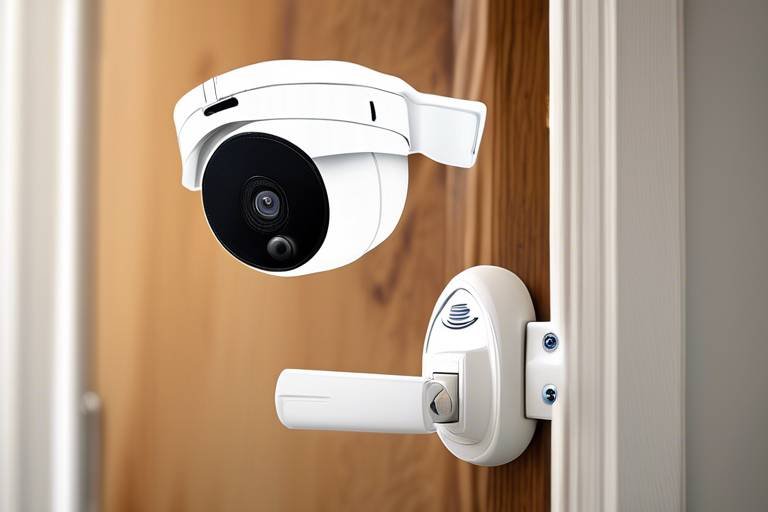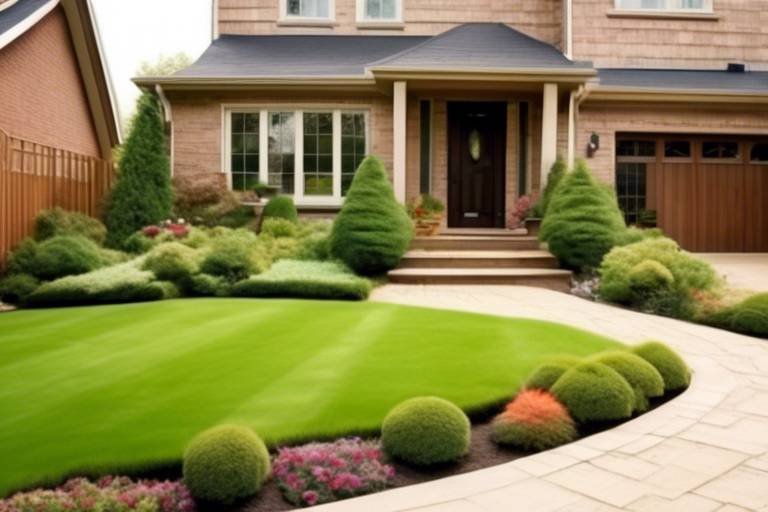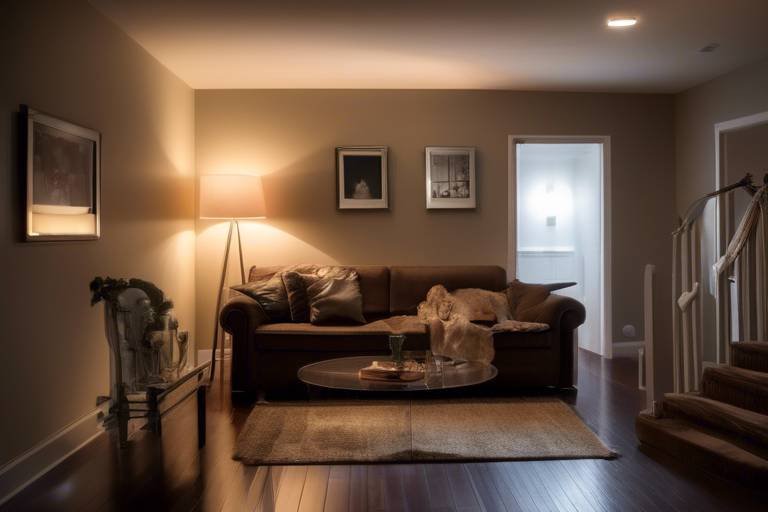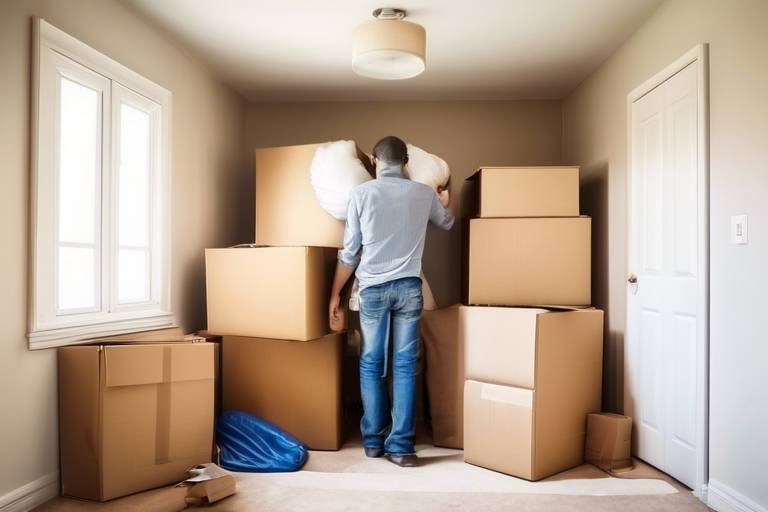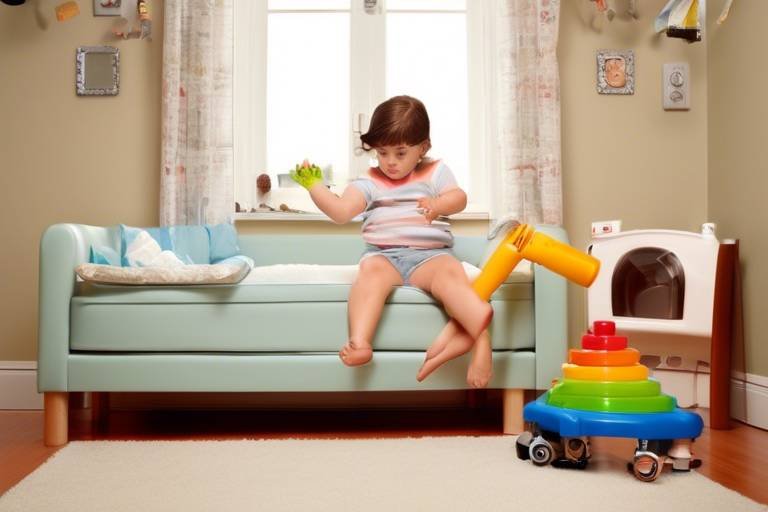Essential Home Security Products for Every Household
In a world where safety concerns are ever-increasing, ensuring the security of your home has become more crucial than ever. With the rise of innovative technology, homeowners now have access to a variety of essential home security products that not only enhance safety but also offer peace of mind. Imagine coming home after a long day, knowing that your loved ones and belongings are safe and sound. This article explores vital home security products that can effectively protect your home and loved ones, allowing you to enjoy life without constantly worrying about potential threats.
Let’s kick things off with smart locks. These modern marvels offer keyless entry and remote access, which means you can control who enters your home from virtually anywhere. No more fumbling around for keys when your hands are full or worrying about losing a spare key. Smart locks enhance convenience and security, making it easier to manage access for family, friends, and service personnel. With features like temporary access codes, you can grant entry to guests without compromising your security. Plus, many smart locks can be integrated with your home automation system, allowing you to control them through your smartphone or voice commands. How cool is that?
Next up are security cameras, your eyes on the outside (and inside) of your home. These devices provide real-time surveillance and recorded footage, serving as a powerful deterrent against crime. Security cameras come in various types, including indoor and outdoor options, each designed to meet specific needs. Whether you want to keep an eye on your kids playing in the living room or monitor the front porch for package deliveries, there's a camera for that!
Indoor cameras are specifically designed to monitor the interior of your home. They can provide peace of mind while you're away, ensuring that everything is as it should be. Many of these cameras come equipped with features like motion detection and two-way audio, allowing you to communicate with family members or pets from afar. Imagine being at work and checking in on your furry friend while giving them a little encouragement over the speaker!
When selecting an indoor camera, you'll find that many models boast impressive features, including:
- Night Vision: Ensures clear footage even in low-light conditions.
- Cloud Storage: Allows you to save and review footage whenever you need.
- Mobile Alerts: Notifies you of any unusual activity, keeping you informed at all times.
With these features, you can stay connected and informed about what’s happening in your home, even when you’re not physically there.
When it comes to selecting the right indoor camera, consider factors such as resolution, field of view, and integration with other smart home devices. The right choice can make a significant difference in your overall security setup. You wouldn’t want to miss a thing, right?
Now, let’s talk about outdoor cameras. Designed to withstand the elements, these cameras provide crucial surveillance for your property’s exterior. They serve as a strong deterrent against potential intruders. With features like weather resistance and high-definition video quality, outdoor cameras can capture clear images of anyone approaching your home, day or night. Think of them as your personal security guards, always on patrol!
Alarm systems are another essential component of home security. They alert homeowners and authorities to unauthorized access, providing an essential layer of security. These systems can be customized to fit various needs and budgets, ensuring that everyone can find a solution that works for them. With options ranging from basic setups to comprehensive systems equipped with advanced technology, protecting your home has never been easier.
Alarm systems can be categorized into two main types: wired and wireless. Wired systems are typically more reliable but can be more challenging to install. On the other hand, wireless systems offer greater flexibility and are easier to set up, making them a popular choice among homeowners. Additionally, you can choose between professional monitoring services or self-monitoring via mobile apps. The choice is yours!
Integrating alarm systems with smart home technology allows for enhanced automation and control. Imagine receiving alerts on your phone, adjusting your security settings remotely, or even having your lights flash when the alarm is triggered. This synergy improves overall security and convenience for homeowners, making it easier than ever to keep your home safe.
Q: What are the benefits of smart locks?
A: Smart locks offer keyless entry, remote access, and enhanced security features, making it easier to manage who enters your home.
Q: How do security cameras deter crime?
A: The presence of security cameras can discourage potential intruders from attempting to break in, as they know they are being monitored.
Q: Are alarm systems worth the investment?
A: Yes! Alarm systems provide peace of mind and can alert you and authorities to unauthorized access, potentially preventing theft or damage.
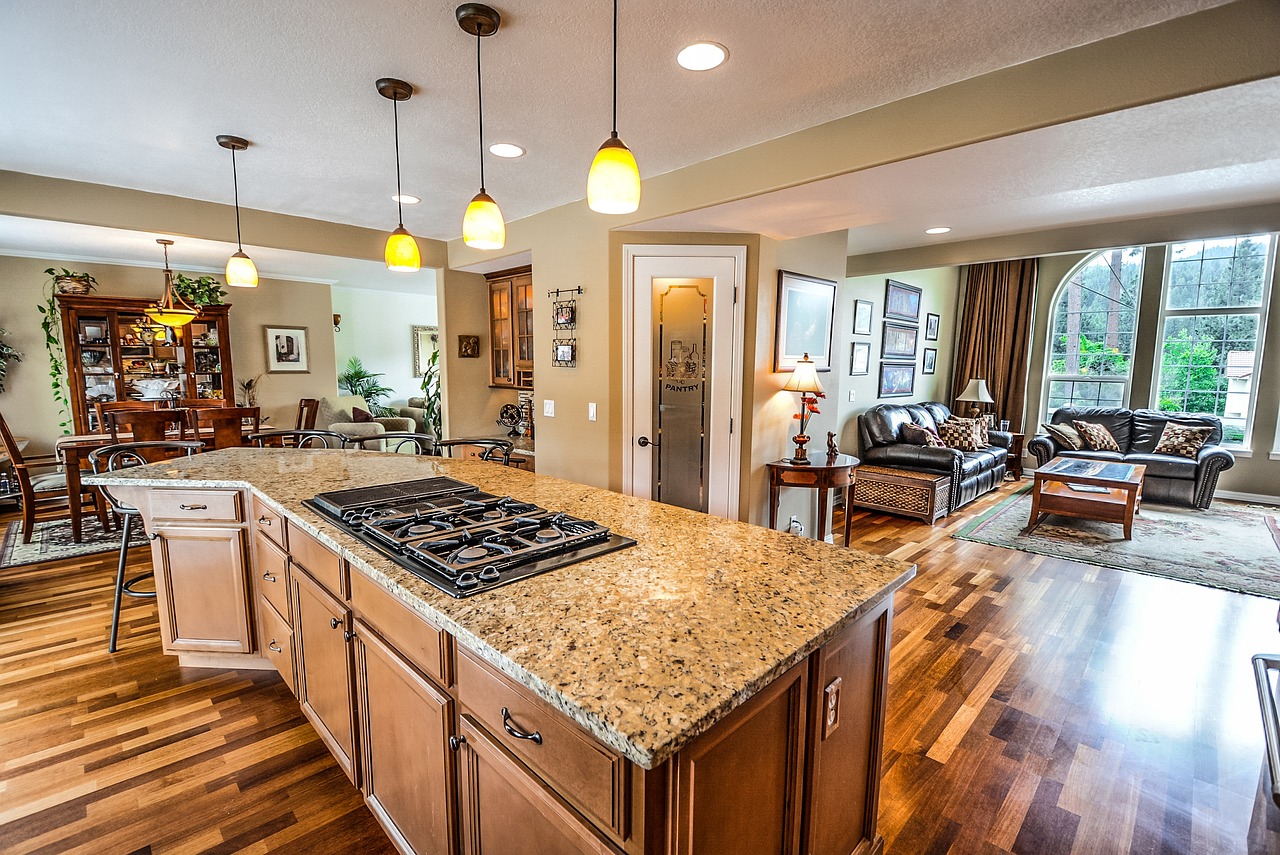
Smart Locks
This article explores vital home security products that enhance safety and peace of mind for every household. Discover innovative solutions to protect your home and loved ones effectively.
are revolutionizing the way we think about home security. Gone are the days of fumbling for keys or worrying about lost duplicates. With smart locks, you can enjoy keyless entry and the ability to control access to your home from anywhere. Imagine being able to let guests in while you’re at work or ensuring that your kids make it home safely without needing to carry a key. This level of convenience not only enhances your lifestyle but also significantly boosts your home’s security.
One of the most appealing features of smart locks is their remote access capability. Most smart locks connect to your smartphone via Bluetooth or Wi-Fi, allowing you to lock and unlock your door with just a tap. You can even grant temporary access codes to visitors, making it easy for friends or service personnel to enter your home without needing to be present. This is particularly useful for those who frequently have guests or rely on services like dog walkers or cleaners.
When it comes to installation, many smart locks are designed to be user-friendly. Most can be installed on existing deadbolts, meaning you won’t need to hire a professional locksmith. However, if you’re not particularly handy, you might want to consider hiring someone to ensure everything is set up correctly. After all, the last thing you want is to compromise your security due to a faulty installation!
In terms of security features, many smart locks offer advanced technology such as two-factor authentication and auto-locking capabilities. This means that not only do you have to enter a code or use your smartphone, but you might also have to verify your identity through another method, adding an extra layer of protection. Additionally, some models come equipped with alarms that will notify you if someone tries to tamper with the lock.
As you consider investing in a smart lock, it’s important to evaluate your needs and preferences. Here are some key factors to consider:
- Compatibility: Ensure the smart lock can integrate with your existing smart home system.
- Power Source: Check whether it runs on batteries or requires a power outlet.
- Durability: Look for locks that are weather-resistant if you plan to install them on exterior doors.
- Brand Reputation: Research brands and read reviews to find reliable options.
In summary, smart locks are an excellent investment for modern homeowners looking to enhance their security while enjoying the convenience of technology. With their ability to provide remote access, customizable entry codes, and advanced security features, they are quickly becoming a staple in home security systems. So, why stick with traditional locks when you can upgrade to a smart lock that offers both peace of mind and a touch of modernity?
Security cameras provide real-time surveillance and recorded footage, helping to deter crime and monitor activity around your home. They come in various types, including indoor and outdoor options.
Indoor cameras are designed to monitor the interior of your home, providing peace of mind while you're away. They often include features like motion detection and two-way audio.
Many indoor cameras come equipped with night vision, cloud storage, and mobile alerts, ensuring you stay informed about any unusual activity in your home.
Selecting the right indoor camera involves considering factors such as resolution, field of view, and integration with other smart home devices.
Outdoor cameras are built to withstand the elements and provide surveillance for your property’s exterior. They serve as a strong deterrent against potential intruders.
Alarm systems alert homeowners and authorities to unauthorized access, providing an essential layer of security. They can be customized to fit various needs and budgets.
Alarm systems can be wired or wireless, with options for monitoring through professional services or self-monitoring via mobile apps.
Integrating alarm systems with smart home technology allows for enhanced automation and control, improving overall security and convenience for homeowners.
Q: How do smart locks work?
A: Smart locks use Bluetooth or Wi-Fi to connect to your smartphone, allowing for keyless entry and remote access.
Q: Are smart locks safe?
A: Yes, most smart locks come with advanced security features such as two-factor authentication and tamper alerts.
Q: Can I install a smart lock myself?
A: Many smart locks are designed for easy installation, but if you're unsure, it's always best to consult a professional.
Q: What should I look for in a security camera?
A: Look for features like resolution, night vision, field of view, and compatibility with your smart home system.

Security Cameras
When it comes to safeguarding your home, are a game changer. They serve as your eyes when you’re not around, offering real-time surveillance and recorded footage that can help deter crime and monitor activity around your property. Imagine being able to check in on your home from anywhere in the world, all thanks to a simple app on your smartphone! With advancements in technology, security cameras have become more than just a luxury; they are now essential tools for every household.
Security cameras come in a variety of types, each designed to meet different needs. You’ll find options for both indoor and outdoor use, allowing you to create a comprehensive security system tailored to your home’s unique layout. Indoor cameras are perfect for keeping an eye on your pets, children, or even just ensuring that everything is as it should be when you’re away. On the other hand, outdoor cameras act as a formidable barrier against intruders, capturing any suspicious activity before it escalates.
Indoor cameras are designed specifically for monitoring the interior of your home. They provide peace of mind, especially when you’re out for extended periods. Many of these cameras come equipped with advanced features like motion detection, which alerts you to any movement, and two-way audio, allowing you to communicate with anyone in your home even when you’re miles away. Imagine being able to tell your dog to stop chewing on the furniture or reassuring your child that you're just a phone call away!
When selecting an indoor camera, you’ll want to consider several important features that can enhance your security. Some of the most common features include:
- Night Vision: Many cameras now come with night vision capabilities, allowing you to see clearly in low-light conditions.
- Cloud Storage: This feature enables you to save footage for later viewing, ensuring that you can access important recordings when needed.
- Mobile Alerts: Stay informed about any unusual activity with instant alerts sent directly to your smartphone.
Choosing the right indoor camera can feel overwhelming with so many options available. Start by considering factors like resolution—higher resolution means clearer images. You’ll also want to look at the field of view; cameras with a wider angle can cover more area. Finally, think about how well the camera integrates with other smart home devices. A camera that can work seamlessly with your smart doorbell or alarm system can provide a more cohesive security solution.
Outdoor cameras are built to endure the elements, providing surveillance for your property’s exterior. These cameras are often weather-resistant and equipped with features that make them ideal for outdoor use, such as enhanced night vision and motion sensors. Placing outdoor cameras at strategic locations around your home can serve as a strong deterrent against potential intruders. Just picture this: a would-be burglar approaches your property and sees a camera staring right at them—most will think twice before proceeding!
In conclusion, security cameras are a vital component of any home security system. They not only help you monitor your home but also give you peace of mind knowing that you can keep an eye on your loved ones and belongings, no matter where you are. Investing in the right security camera setup can make all the difference in protecting your home and enhancing your overall sense of safety.
Q: How do I choose the best security camera for my home?
A: Consider factors like resolution, field of view, indoor vs. outdoor capabilities, and integration with other smart home devices.
Q: Can I access my security camera footage remotely?
A: Yes, most modern security cameras allow you to view live footage and recorded clips through a mobile app.
Q: Are outdoor cameras weatherproof?
A: Yes, outdoor cameras are specifically designed to withstand various weather conditions, including rain, snow, and extreme temperatures.
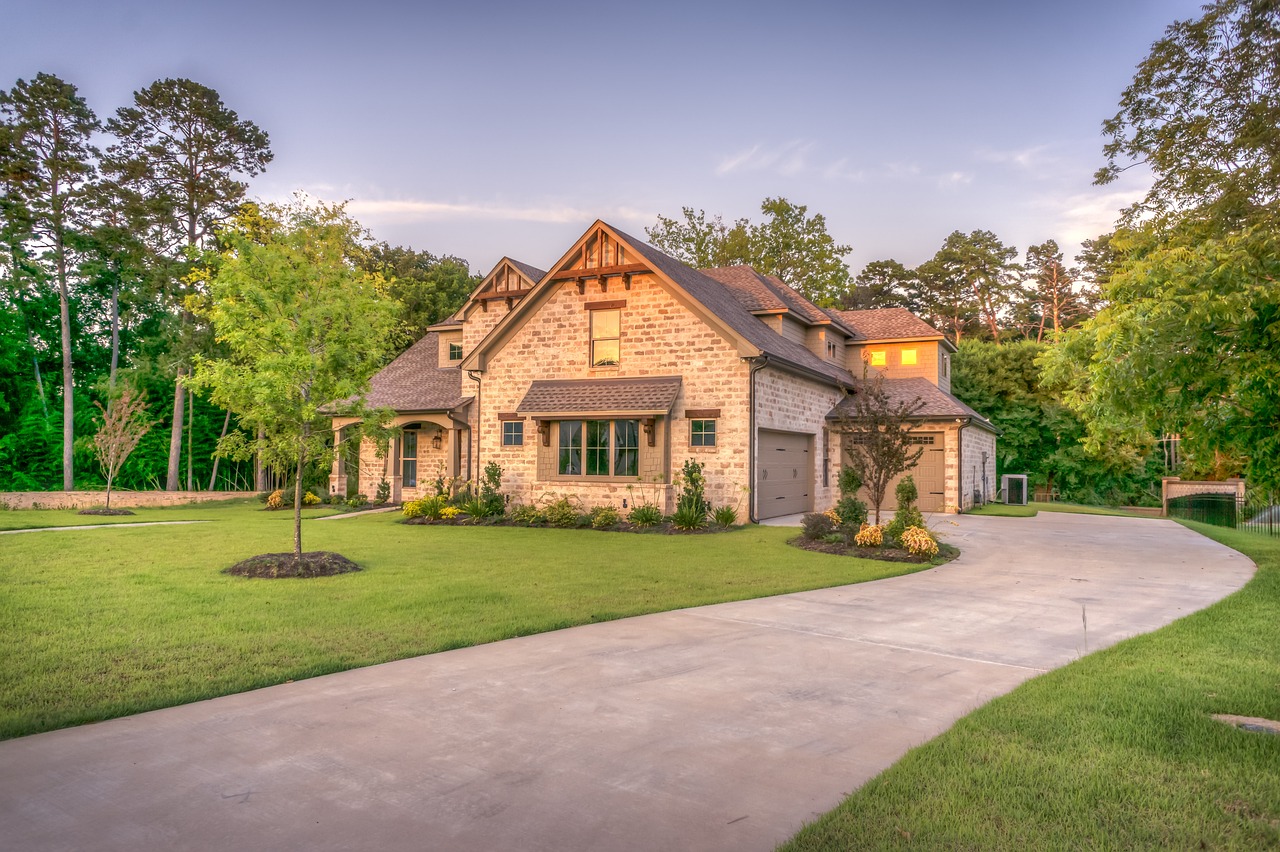
Indoor Cameras
When it comes to safeguarding your home, play a pivotal role in providing that much-needed peace of mind. Imagine being able to monitor every corner of your home, even when you're miles away! Indoor cameras are designed specifically to keep an eye on the interior of your dwelling, ensuring that everything is just as it should be. They are not just about surveillance; they are about creating a sense of security for you and your loved ones.
One of the most compelling features of indoor cameras is their ability to offer real-time monitoring. With just a few taps on your smartphone, you can check in on your home while you’re at work, running errands, or even on vacation. This level of accessibility is a game-changer! Many models come equipped with motion detection, which means you’ll receive alerts if any movement is detected in your home. It’s like having a virtual security guard on duty 24/7, ready to notify you of anything unusual.
Indoor cameras also often feature two-way audio, allowing you to communicate with family members or even pets while you're away. Picture this: you’re at the office, and you want to check in on your dog who’s home alone. With a quick voice command through your camera, you can reassure them and even give them a little treat if you have a smart dispenser connected. This feature adds a personal touch to your home security system, turning it into a more interactive experience.
Many indoor cameras come loaded with advanced features, making them a worthwhile investment. Here are some popular attributes to look for:
- Night Vision: This allows you to capture clear footage even in low-light conditions, ensuring your home is monitored around the clock.
- Cloud Storage: Many cameras offer options for cloud storage, which means you can save and access recorded footage without worrying about local storage limitations.
- Mobile Alerts: Instant notifications keep you in the loop about any unusual activity detected by the camera.
Choosing the right indoor camera can feel overwhelming given the plethora of options available. It’s crucial to consider factors such as resolution, which determines the clarity of the video; field of view, which affects how much area the camera can cover; and integration with other smart home devices, which can enhance the functionality of your security setup. By carefully evaluating these aspects, you can select a camera that best fits your home and lifestyle.
In conclusion, indoor cameras are not just a luxury; they are an essential component of a modern home security system. With their innovative features and capabilities, they provide homeowners with a sense of control and peace of mind. Whether you're monitoring your pets, keeping an eye on your kids, or just ensuring that everything is safe while you're away, indoor cameras are a wise investment for any household.
- How do indoor cameras connect to my home network?
Most indoor cameras connect via Wi-Fi, allowing you to access the footage through a mobile app on your smartphone or tablet. - Can I view the camera feed remotely?
Yes, as long as your camera is connected to the internet, you can view the live feed from anywhere using the corresponding app. - Are indoor cameras easy to install?
Most indoor cameras are designed for easy installation, often requiring just a few simple steps to set up. - Do indoor cameras require a subscription for cloud storage?
Some cameras offer free storage options, while others may require a subscription for extended cloud storage capabilities.

Features of Indoor Cameras
This article explores vital home security products that enhance safety and peace of mind for every household. Discover innovative solutions to protect your home and loved ones effectively.
Smart locks offer keyless entry and remote access, allowing homeowners to control who enters their home. These locks enhance convenience and security, making it easier to manage access.
Security cameras provide real-time surveillance and recorded footage, helping to deter crime and monitor activity around your home. They come in various types, including indoor and outdoor options.
Indoor cameras are designed to monitor the interior of your home, providing peace of mind while you're away. They often include features like motion detection and two-way audio.
When it comes to indoor cameras, the range of features available can significantly impact your home security experience. These devices are not just about capturing footage; they come packed with advanced functionalities that enhance their effectiveness. For instance, many indoor cameras are equipped with night vision, allowing them to record clear images even in low light conditions. This feature is particularly useful for monitoring your home during the night when most intrusions occur.
Another important feature is cloud storage. This allows you to save video footage securely online, making it accessible from anywhere at any time. Imagine being on vacation and still being able to check in on your home; cloud storage makes that possible. Additionally, many indoor cameras offer mobile alerts. These notifications can inform you of any unusual activity, ensuring you are always in the loop, even if you’re miles away.
Furthermore, the integration of two-way audio enables you to communicate with anyone in your home through the camera. This feature is not only useful for checking in on pets but also for deterring potential intruders by letting them know they are being watched. The selection of the right indoor camera should also consider factors such as resolution, which affects image clarity, and field of view, which determines how much area the camera can cover. Lastly, compatibility with other smart home devices can enhance your security system, allowing for a more cohesive and efficient setup.
Outdoor cameras are built to withstand the elements and provide surveillance for your property’s exterior. They serve as a strong deterrent against potential intruders.
Alarm systems alert homeowners and authorities to unauthorized access, providing an essential layer of security. They can be customized to fit various needs and budgets.
Alarm systems can be wired or wireless, with options for monitoring through professional services or self-monitoring via mobile apps.
Integrating alarm systems with smart home technology allows for enhanced automation and control, improving overall security and convenience for homeowners.
- What is the best indoor camera feature for home security?
The best feature often varies by individual needs, but night vision and mobile alerts are commonly regarded as essential for effective monitoring.
- How do I choose the right security camera?
Consider factors such as resolution, field of view, and whether it integrates well with your existing smart home devices.
- Are smart locks safe?
Yes, smart locks can enhance security by offering keyless entry and remote access, but it's crucial to choose a reputable brand and keep software updated.
- Can I monitor my home security system remotely?
Absolutely! Many modern security systems, including cameras and alarm systems, offer mobile app integration for remote monitoring.

Choosing the Right Indoor Camera
When it comes to , there are several critical factors to consider that can significantly impact your home security experience. First and foremost, resolution plays a vital role. High-definition cameras provide clearer images, making it easier to identify faces or details in case of an incident. Look for cameras that offer at least 1080p resolution for optimal clarity.
Next, consider the field of view. A wider field of view means that the camera can capture more of the room, reducing the number of cameras you might need to install. Some cameras offer a panoramic view or the ability to pan and tilt, allowing you to adjust the angle remotely. This feature can be particularly useful for monitoring large spaces or multiple areas from a single device.
Another critical feature to look for is integration with other smart home devices. If you already have a smart home ecosystem, choosing a camera that can seamlessly integrate with your existing devices can enhance your overall security. For instance, some cameras can work with smart doorbells, alarms, or even smart lighting systems, providing a comprehensive security solution that can be controlled from a single app.
Moreover, consider the storage options available for your camera. Some indoor cameras come with cloud storage, allowing you to save footage remotely. This can be a lifesaver in case of theft, as you won’t lose footage if the camera is damaged or stolen. However, keep in mind that cloud storage often requires a subscription fee, so factor this into your budget. Alternatively, some cameras offer local storage options via SD cards, which can be more cost-effective in the long run.
Lastly, check for additional features that can enhance your peace of mind. Features like night vision, motion detection, and two-way audio can be incredibly beneficial. Night vision allows you to monitor your home in low-light conditions, while motion detection alerts you to any unusual activity. Two-way audio enables you to communicate with anyone in the vicinity of the camera, which can be helpful for monitoring pets or greeting visitors.
| Feature | Importance |
|---|---|
| Resolution | Clearer images for better identification |
| Field of View | Wider coverage reduces the number of cameras needed |
| Smart Home Integration | Enhanced control and automation |
| Storage Options | Access to footage even if the camera is damaged |
| Additional Features | Night vision, motion detection, and two-way audio enhance security |
By taking the time to evaluate these factors, you can make an informed decision when selecting an indoor camera that not only meets your security needs but also fits seamlessly into your lifestyle. Remember, the right indoor camera can provide you with the peace of mind you deserve, ensuring that your home is monitored and protected at all times.
- What is the best resolution for indoor cameras? A resolution of at least 1080p is recommended for clear images.
- Do I need a subscription for cloud storage? Many cameras offer cloud storage for a fee, but some also provide local storage options.
- Can I integrate my indoor camera with other smart devices? Yes, many modern indoor cameras are designed to work with other smart home devices.
- What features should I prioritize in an indoor camera? Look for features like night vision, motion detection, and two-way audio for enhanced functionality.
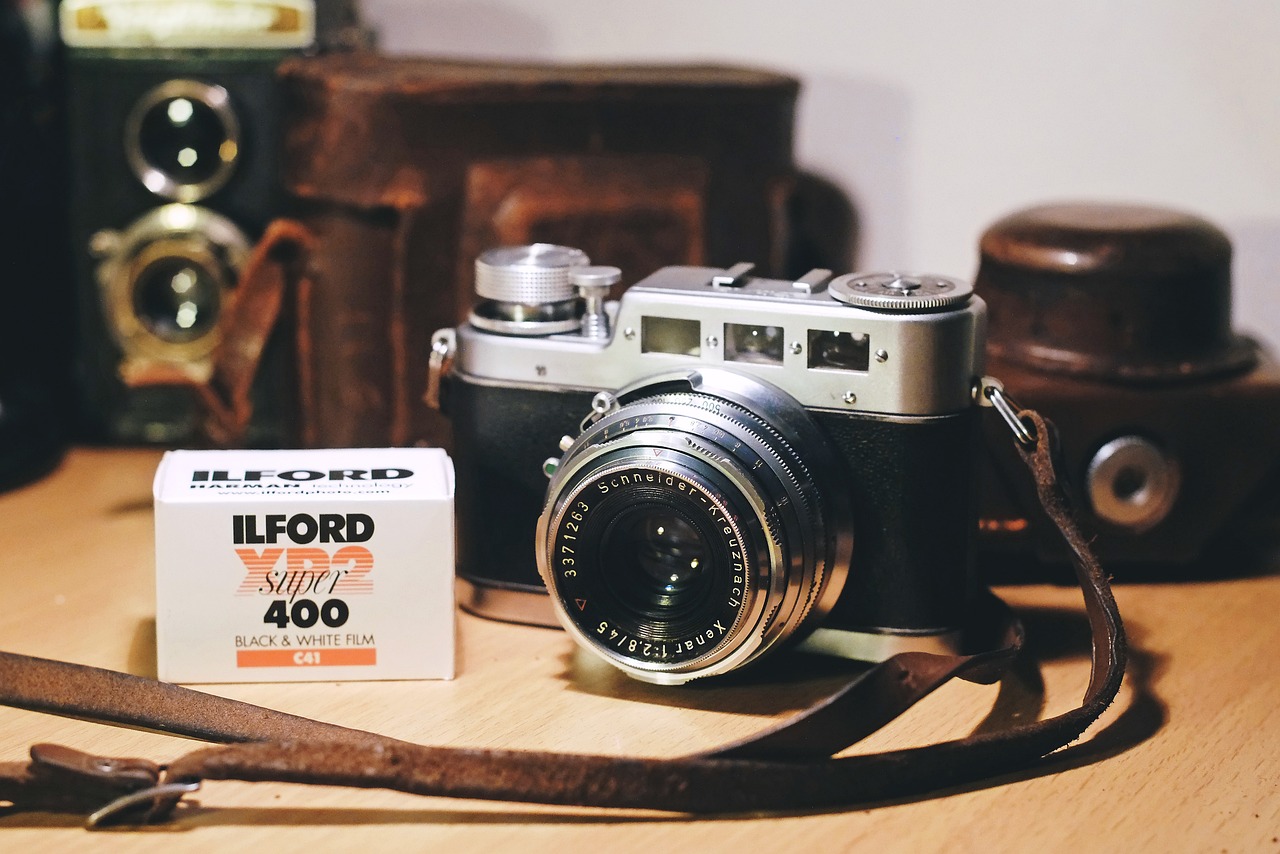
Outdoor Cameras
When it comes to safeguarding your home, are like the vigilant sentinels standing guard over your property. These devices are specifically designed to endure harsh weather conditions while providing a watchful eye on your surroundings. Imagine having a pair of eyes that never blink, constantly monitoring your yard, driveway, and entry points. This peace of mind is invaluable, especially when you consider the potential threats that lurk outside.
One of the standout features of outdoor cameras is their high-definition video quality. Many modern models offer 1080p or even 4K resolution, ensuring that you capture every detail. Whether it’s a suspicious figure lurking in the shadows or a package being delivered, you’ll have clear footage to review. Additionally, most outdoor cameras come equipped with night vision capabilities, allowing them to operate effectively in low-light conditions. This means that even in the dead of night, your home remains under constant surveillance.
Another compelling aspect of outdoor cameras is their motion detection technology. These cameras can be programmed to send alerts directly to your smartphone whenever they detect movement. This feature not only helps you stay informed about activity around your home but also acts as a powerful deterrent against potential intruders. After all, who would dare to approach a house where they know they are being watched? It's like putting up a 'Beware of Dog' sign, but with the added benefit of actual footage.
When selecting an outdoor camera, there are several factors to consider. Look for options that offer weatherproof ratings, as this ensures durability against rain, snow, and extreme temperatures. Additionally, consider the field of view; some cameras provide a wide-angle lens that can cover more area, reducing the number of cameras you need to install. You might also want to check if the camera has a built-in siren or spotlight feature, which can further enhance security by startling potential intruders.
Here’s a quick comparison table of popular outdoor camera features to help you make an informed decision:
| Camera Model | Resolution | Night Vision | Field of View | Weatherproof Rating |
|---|---|---|---|---|
| Model A | 1080p | Yes | 120° | IP65 |
| Model B | 4K | Yes | 90° | IP67 |
| Model C | 720p | No | 110° | IP66 |
In summary, outdoor cameras are an essential component of a comprehensive home security system. They not only provide a sense of safety but also empower homeowners with the ability to monitor their property in real-time. With advanced features and robust designs, these cameras are a worthwhile investment for anyone looking to enhance their home security.
Q: How do I install outdoor cameras?
A: Most outdoor cameras come with installation kits and detailed instructions. Typically, you will need to mount the camera at a height that provides a clear view of your property while ensuring it is secure from tampering.
Q: Do outdoor cameras require Wi-Fi?
A: Yes, most outdoor cameras require a Wi-Fi connection for remote monitoring. However, some models offer local storage options that do not rely on internet connectivity.
Q: Can outdoor cameras work in extreme weather conditions?
A: Yes, as long as they have a suitable weatherproof rating, outdoor cameras are designed to function in various weather conditions, including rain, snow, and extreme temperatures.

Alarm Systems
When it comes to safeguarding your home, play a pivotal role in providing peace of mind and security. Imagine being able to sleep soundly at night, knowing that your home is protected by a robust alarm system that alerts you and the authorities in case of unauthorized access. These systems are not just a luxury; they are a necessity in today’s world where safety concerns are ever-present. With a variety of options available, it’s essential to understand how alarm systems work and what features you should consider when choosing one for your home.
Alarm systems come in different forms, tailored to meet the needs of various households. They can range from simple setups that notify you of a breach to more sophisticated systems that integrate with your smart home devices. The ability to customize these systems means that you can select the features that best suit your lifestyle and budget. For instance, some homeowners may prefer a basic alarm that sounds off when a door is opened unexpectedly, while others might opt for a comprehensive system that includes window sensors, motion detectors, and even surveillance cameras.
One of the most significant advantages of modern alarm systems is the ability to monitor them remotely. With the advent of technology, many systems now offer mobile app integration, allowing you to receive real-time alerts and control your alarm system from anywhere. This feature is particularly beneficial for those who travel frequently or have busy lifestyles, as it provides an added layer of security. You can easily check the status of your system, arm or disarm it, and even view live footage from your security cameras right from your smartphone.
Additionally, alarm systems can be categorized into two main types: wired and wireless. Wired systems are typically more reliable, as they are less susceptible to interference, but installation can be more complex and costly. On the other hand, wireless systems are easier to install and can be moved with you if you decide to relocate. Each type has its pros and cons, so it’s crucial to weigh your options based on your specific needs.
Furthermore, many alarm systems now offer integration with other smart home technologies. This means that your alarm system can work in tandem with devices such as smart locks, lights, and thermostats to create a seamless home automation experience. For example, you can set your lights to turn on automatically when your alarm is triggered, or lock your doors remotely if you forget to do so before leaving home. This level of integration not only enhances your security but also improves your overall convenience.
In conclusion, investing in a quality alarm system is one of the best decisions you can make for your home. It not only protects your property but also provides you with the assurance that your loved ones are safe. Whether you choose a basic system or a comprehensive smart home integration, the important thing is to select a solution that fits your lifestyle and gives you peace of mind.
- What is the average cost of a home alarm system? The cost can vary significantly based on the features and type of system you choose, but basic systems typically start around $200, while more advanced setups can exceed $1,000.
- Do I need professional installation? While many systems offer DIY installation, professional installation can ensure that your system is set up correctly and functioning optimally.
- Can I integrate my alarm system with other smart home devices? Yes! Many modern alarm systems are designed to work seamlessly with various smart home devices, enhancing your home’s security and convenience.
- What happens if my alarm goes off accidentally? Most alarm systems allow you to disarm them quickly, and many provide a grace period to prevent false alarms from triggering notifications to authorities.

Types of Alarm Systems
When it comes to safeguarding your home, understanding the various available is crucial. Alarm systems are not a one-size-fits-all solution; they come in different configurations to cater to specific needs and preferences. Essentially, there are two primary categories: wired and wireless systems. Each type has its own advantages and disadvantages, making it important to evaluate what will work best for your unique situation.
Wired alarm systems are traditional setups that involve physical connections between the alarm components. This means that sensors, control panels, and other devices are all linked by wires. One of the biggest benefits of wired systems is their reliability; they are less prone to interference and hacking, making them a solid choice for those who prioritize security. However, installation can be labor-intensive and may require professional help, especially if you’re retrofitting an existing home.
On the other hand, wireless alarm systems have gained immense popularity in recent years due to their ease of installation and flexibility. These systems use radio signals to communicate between devices, which means you can set them up without the hassle of drilling holes or running wires. This makes them particularly appealing for renters or those who frequently move. However, it's essential to be aware that wireless systems can sometimes be susceptible to interference from other electronic devices, and battery management becomes crucial in maintaining their functionality.
Moreover, alarm systems can be further categorized based on their monitoring options. Here are the main types:
- Professional Monitoring: This type involves a dedicated monitoring service that keeps an eye on your system 24/7. If an alarm is triggered, the monitoring center will contact you and, if necessary, dispatch authorities.
- Self-Monitoring: With self-monitoring systems, you receive alerts directly to your smartphone or other devices. While this option can be more cost-effective, it requires you to be vigilant and responsive to any alerts.
Another aspect to consider is the integration capabilities of your alarm system. Many modern alarm systems can seamlessly integrate with smart home technology, allowing you to control everything from lights to locks from a single app. This kind of automation not only enhances your security but also contributes to the overall convenience of managing your home. Imagine receiving a notification on your phone while you're at work, allowing you to check your cameras or unlock the door for a delivery—all from your fingertips!
In summary, choosing the right alarm system involves weighing the pros and cons of wired versus wireless options and considering how you want your system to be monitored. With the right setup, you can ensure that your home is a fortress, providing you with peace of mind and security.
Q: What is the difference between wired and wireless alarm systems?
A: Wired systems are connected through physical wires, making them more reliable but harder to install. Wireless systems use radio signals for communication, allowing for easy installation but may be susceptible to interference.
Q: Do I need professional monitoring for my alarm system?
A: While professional monitoring offers 24/7 surveillance and quick response, self-monitoring can be a cost-effective option if you are vigilant about responding to alerts.
Q: Can I integrate my alarm system with smart home devices?
A: Yes! Many modern alarm systems can integrate with smart home technology, allowing you to control various devices through a single app.
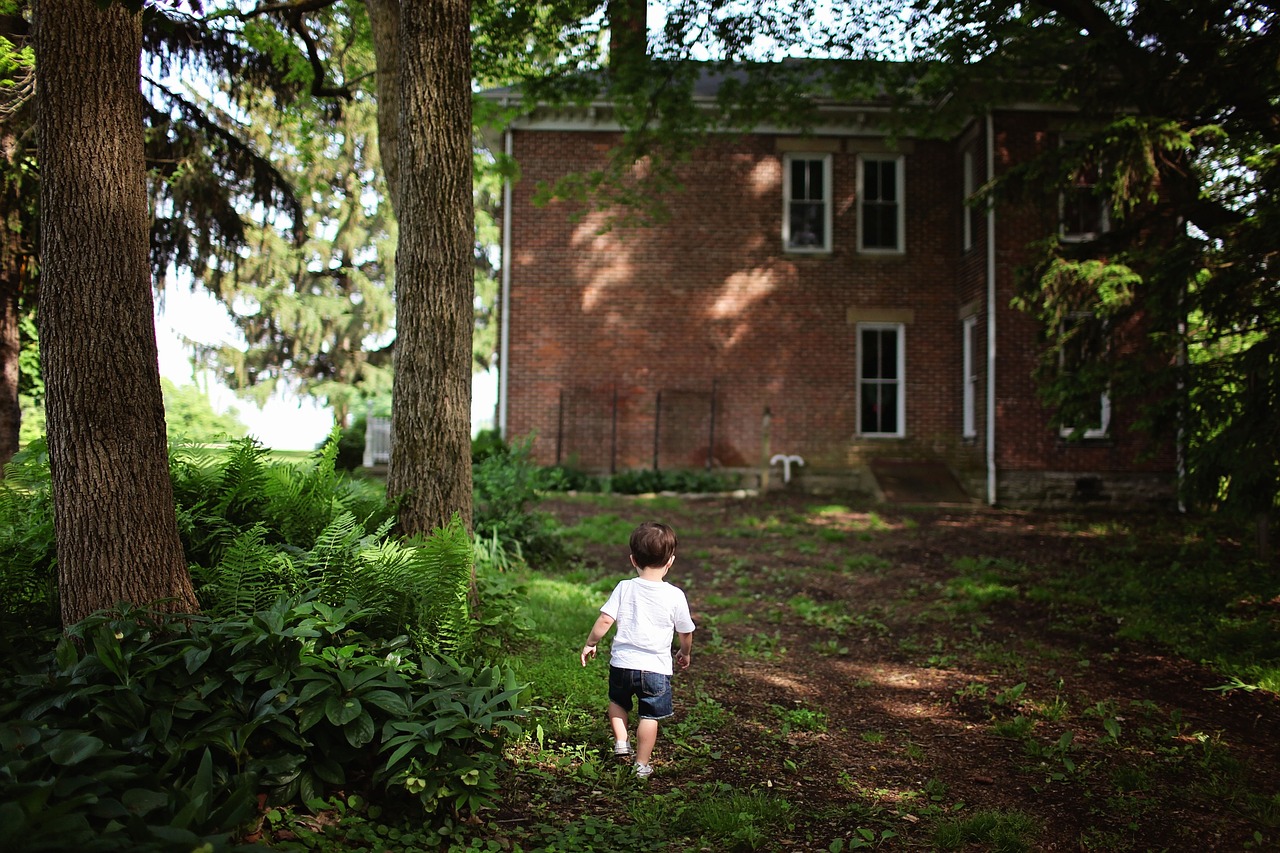
Integrating Alarm Systems with Smart Home Technology
This article explores vital home security products that enhance safety and peace of mind for every household. Discover innovative solutions to protect your home and loved ones effectively.
Smart locks offer keyless entry and remote access, allowing homeowners to control who enters their home. These locks enhance convenience and security, making it easier to manage access.
Security cameras provide real-time surveillance and recorded footage, helping to deter crime and monitor activity around your home. They come in various types, including indoor and outdoor options.
Indoor cameras are designed to monitor the interior of your home, providing peace of mind while you're away. They often include features like motion detection and two-way audio.
Many indoor cameras come equipped with night vision, cloud storage, and mobile alerts, ensuring you stay informed about any unusual activity in your home.
Selecting the right indoor camera involves considering factors such as resolution, field of view, and integration with other smart home devices.
Outdoor cameras are built to withstand the elements and provide surveillance for your property’s exterior. They serve as a strong deterrent against potential intruders.
Alarm systems alert homeowners and authorities to unauthorized access, providing an essential layer of security. They can be customized to fit various needs and budgets.
Alarm systems can be wired or wireless, with options for monitoring through professional services or self-monitoring via mobile apps.
Integrating alarm systems with smart home technology is like giving your home a brain. Imagine having a security system that not only alerts you of a break-in but also communicates with your lights, locks, and even your thermostat. This integration allows for seamless control and enhanced security, transforming your home into a smart fortress.
With smart home technology, you can manage your alarm system from anywhere using your smartphone. Whether you’re at work or on vacation, you can arm or disarm your system, receive real-time alerts, and even view live camera feeds. This means that no matter where you are, you’re always in control of your home security.
Additionally, many modern alarm systems can integrate with voice assistants like Amazon Alexa or Google Assistant. This means you can simply say, “Hey Google, arm the security system,” and it’s done! This level of convenience not only enhances your daily routine but also ensures that you never forget to secure your home.
Furthermore, integrating your alarm system with other smart devices can create an automated response to security breaches. For instance:
- If a door sensor is triggered, the system can automatically turn on exterior lights to deter intruders.
- It can lock all doors and windows when you leave the house.
- In case of an emergency, it can notify local authorities and send you alerts simultaneously.
To sum it up, integrating alarm systems with smart home technology not only enhances security but also elevates the convenience of managing your home. It’s like having a personal security guard that never sleeps, always on the lookout for potential threats while you go about your daily life.
Q: Can I integrate my existing alarm system with smart home technology?
A: It depends on the model of your alarm system. Many newer systems are designed to be compatible with smart home devices, but older systems may require upgrades or additional components.
Q: What are the benefits of using smart locks with my alarm system?
A: Smart locks can provide keyless entry and remote access, enhancing convenience and security. When integrated with your alarm system, they can automatically lock when the alarm is armed.
Q: Are smart home security systems expensive?
A: The cost can vary widely based on the features and devices you choose. However, many affordable options are available that provide excellent security without breaking the bank.
Q: How do I choose the right alarm system for my home?
A: Consider factors such as the size of your home, the level of monitoring you desire (professional vs. self-monitoring), and the types of devices you want to integrate with your system.
Frequently Asked Questions
- What are smart locks and how do they work?
Smart locks are advanced locking mechanisms that allow for keyless entry and remote access. They work through a smartphone app or a keypad, enabling you to control who enters your home without the need for traditional keys. Imagine being able to unlock your door for a friend while you're still at work—it's that convenient!
- Are security cameras worth the investment?
Absolutely! Security cameras not only deter potential intruders but also provide peace of mind. With real-time monitoring and recorded footage, you can keep an eye on your property from anywhere. Think of them as your personal watchdog, always on duty!
- What features should I look for in an indoor camera?
When choosing an indoor camera, consider features like high resolution, wide field of view, night vision, and two-way audio. These features ensure you can see and hear what's happening in your home, giving you a complete picture of your indoor security.
- How do outdoor cameras differ from indoor cameras?
Outdoor cameras are designed to withstand various weather conditions and provide surveillance for the exterior of your home. They often come with features like motion detection and night vision, making them perfect for deterring intruders. Think of them as your home's first line of defense!
- What types of alarm systems are available?
Alarm systems can be wired or wireless, and you can choose between professional monitoring or self-monitoring via mobile apps. This flexibility allows you to select a system that fits your lifestyle and budget. It's like having a safety net that you can customize!
- Can I integrate my alarm system with smart home technology?
Yes, integrating your alarm system with smart home technology enhances automation and control. You can manage your security settings from your smartphone, making it easier to keep your home safe. It's like having a security team at your fingertips!

